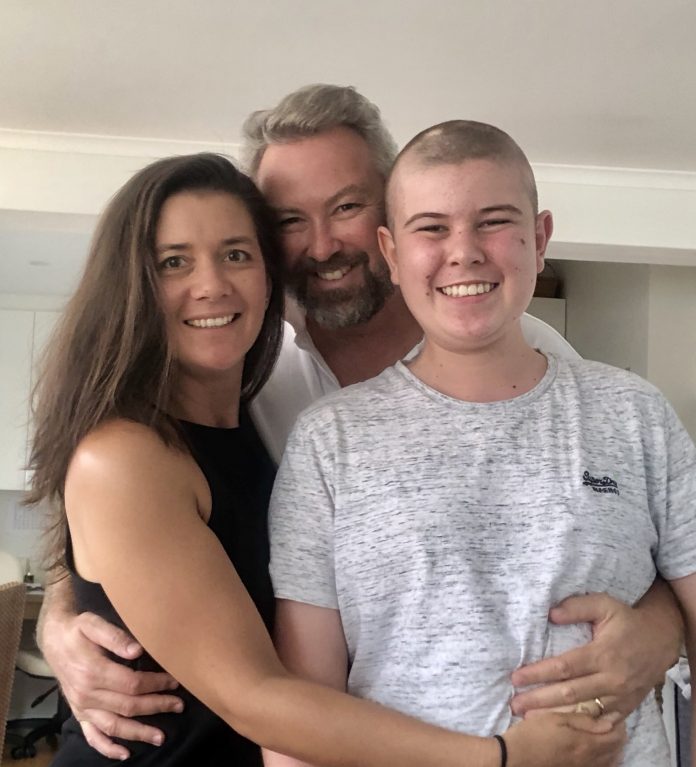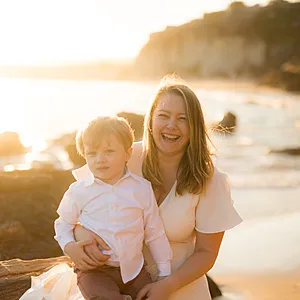At 3.30am 26 November 2018, Geraldine and Gary watched their eldest son Isaac take his final breath. He was 13 years old. They were at his bedside in Manly’s Bear Cottage, where Isaac had been sent for palliative care after a devastating yearlong battle with brain cancer.
Ten months earlier
Isaac had received the astonishing diagnosis of brain cancer just 10 months before. After suffering from headaches and bouts of vomiting, Geraldine and Gary assumed it was anxiety due to end of year exams. After losing 10kg and appearing severely dehydrated, Isaac was taken to Royal North Shore. As Geraldine pleaded with the ER doctor to put him on a drip for fluids and let them go home, she could never have imagined what they were about to find out. After doctors convinced them that Isaac needed to have an MRI and stay in hospital for the results they still couldn’t have imagined the devastating news of a brain tumour. Within 24hrs of receiving that diagnosis, Isaac was transferred to Sydney Children’s Hospital in Randwick where he spent much of 2018 in and out of hospital.
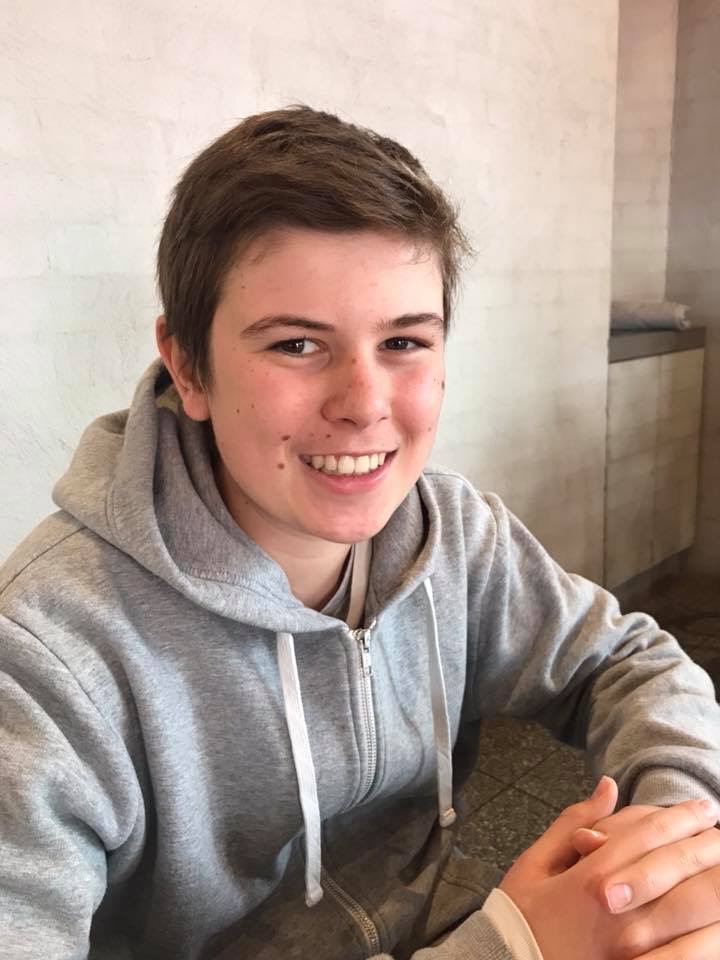
Watching your own child die is probably the hardest thing any person can go through. The year leading up to Isaac’s death was extremely difficult, with excruciating headaches, seizures, vomiting, incontinence and weakness down one side of his body – Isaac often needed a wheel chair to get around. Isaac had to undergo an operation to install a device into his brain with a long tube running down his throat into his stomach which helped relieve fluid buildup. As the tumour grew and the pressure increased in the brain Isaac would be able to press a small button on his skull and the excess fluid would manually flush down into his stomach.
Despite the pain and hardship, Isaac remained a beacon of positivity throughout the entire year of hospital stays. Geraldine recalls Isaac’s nature with absolute fondness. Her eyes water as she looks up, slightly smiling as she recounts how Isaac never once complained and how affectionate and wise beyond his years he was. There was only one moment in the year where Isaac expressed comprehension of his own fate when he said to his uncle at a family gathering, “I think I’m going to have a short life.”
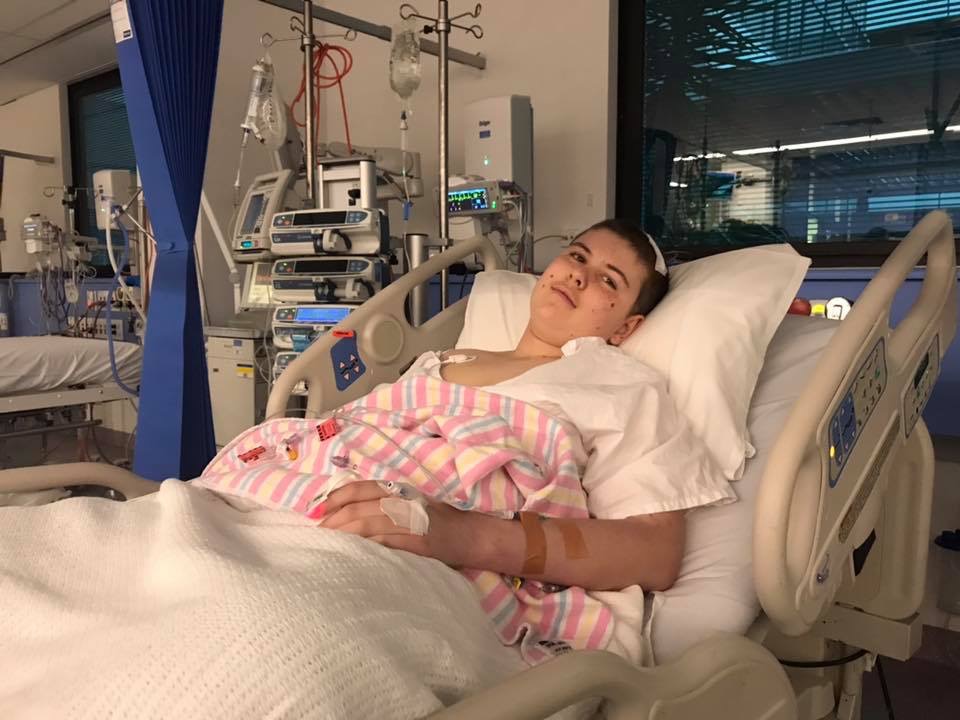
Geraldine said “You might call us deluded or whatever, but we never accepted the ‘terminal’ diagnosis. We just didn’t want to give up! We couldn’t. We thought we have to fight this! We will fight this.”
The idea of it being terminal was just not accepted. “They would find a cure there were new discoveries every day around the world, with a clinical trial, something would work. It had to work.” Geraldine and Gary had been urged many times through 2018 to visit Bear Cottage for a tour. They had several meetings with the Hospital palliative team to discuss their plans. It was an unfathomable idea for them to even be talking about it or to need Bear Cottage because that meant he would never be coming home. The irony of their last days in Bear Cottage was that they wished they’d used the facility more, especially after his operations as the care and support was stunning.

A time to surrender
Isaac’s final night was spent at home eating one of his favourite meals, Pork Belly. That night Geraldine was sleeping with him in his bedroom when at 2am he woke up with a severe headache. He couldn’t talk and couldn’t communicate because the pain was so bad. An ambulance came and took Isaac back to Sydney Children’s Hospital in Randwick. “By that stage he was almost unconscious, but he was holding my hand because we had this cue where he would squeeze my hand to show me how much pain he was in.
“He was squeezing it really hard but couldn’t say anything. We just told the oncologist to give him morphine and she told us then that it was time for us to go to Bear Cottage. Isaac was then transferred to Bear Cottage where he spent the last 10 days in an unconscious state as his friends and family came to visit and say goodbye.
How did this happen?
The type of brain cancer that Isaac had is called Anaplastic Astrocytoma. It is an aggressive, rare and fast-growing tumour. The reason why it is so difficult to cure or remove is because it grows with roots that spread throughout the brain latching onto the brain tissue.
The standard of care for this type of childhood cancer is Chemo and radiation and this protocol for treatment has not changed in 50 years. Geraldine said “If I personally got brain cancer today, I would say no to everything and just live out my days as comfortable as I could be.”
What could they do?
As soon as Isaac was diagnosed, Geraldine and Gary spoke to his Oncologist Prof David Ziegler and asked what he needed to find a cure. Together with the Children’s Cancer Institute, they began raising money to help save their son. In consultation with Prof Ziegler, they decided on a goal of $1m to employ additional researchers to focus on the brain.
“There is so much we just don’t know about brain cancer and so much research that needs to be done.” When asked ‘what causes brain cancer?’ Geraldine replied “That’s exactly what I kept asking. What caused this? How did this happen? I’d always be thinking about all the possible things it could have been. Was it when he fell over at 4 years old and bumped his head? Was it the insecticides they sprayed at the children’s play parks? You eventually have to stop doing that or you go crazy.”
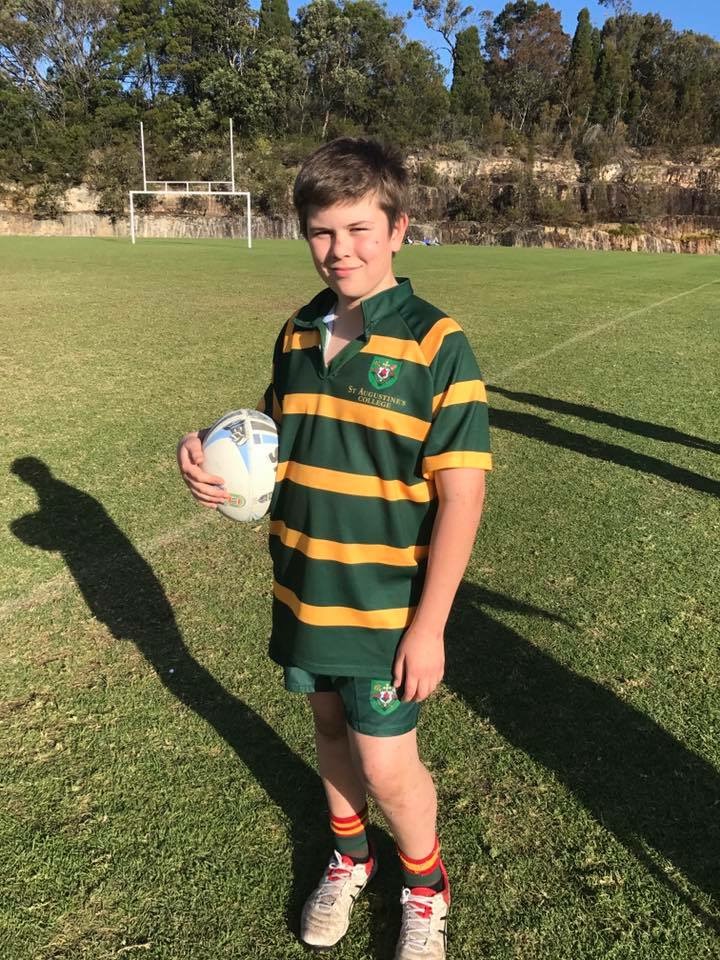
Since Isaac’s death, life is unimaginably hard.The only thing that keeps Geraldine and Gary going now is their younger son Angus. It was Angus that gave them the strength to get up every morning and keeping going day-by-day. Socialising now is almost impossible. Geraldine finds it extremely difficult to be in social situations. Geraldine shares how fortunate they are however, to have a lovely Grief Counsellor Vera. She is quick to point out the wonderful support network for bereaved families of Sydney Children’s Hospital. Despite the difficult days ahead, she and her husband still feel moments of joy and gratitude for the life they have close to the ocean on the Northern Beaches of Sydney.
How you can help
Brain cancer kills more children than any other disease. In order to change these statistics, more research needs to be done to find the answers. Just 20 years ago survival rates for a child diagnosed with leukaemia was 20%, that figure is now almost 90%. Geraldine and Gary hope that brain cancer will one day have the same success. New treatment options need to be explored rather than opting for the standard protocol every time of chemo and radiation therapy. This can only be done with more funding. The one million dollars was what Geraldine and Gary set out to raise to save their son Isaac. Unfortunately Isaac couldn’t benefit but Geraldine and Gary are still on their mission to reach that 1 million dollar target and hope in the process, they can save a child just like their Isaac.
There is just over $50,000 remaining to reach the 1 million dollar target. Donate today at Isaac McInnes | Children’s Cancer Institute (ccia.org.au) to support brain cancer research to find a cure for this aggressive and devastating disease.


